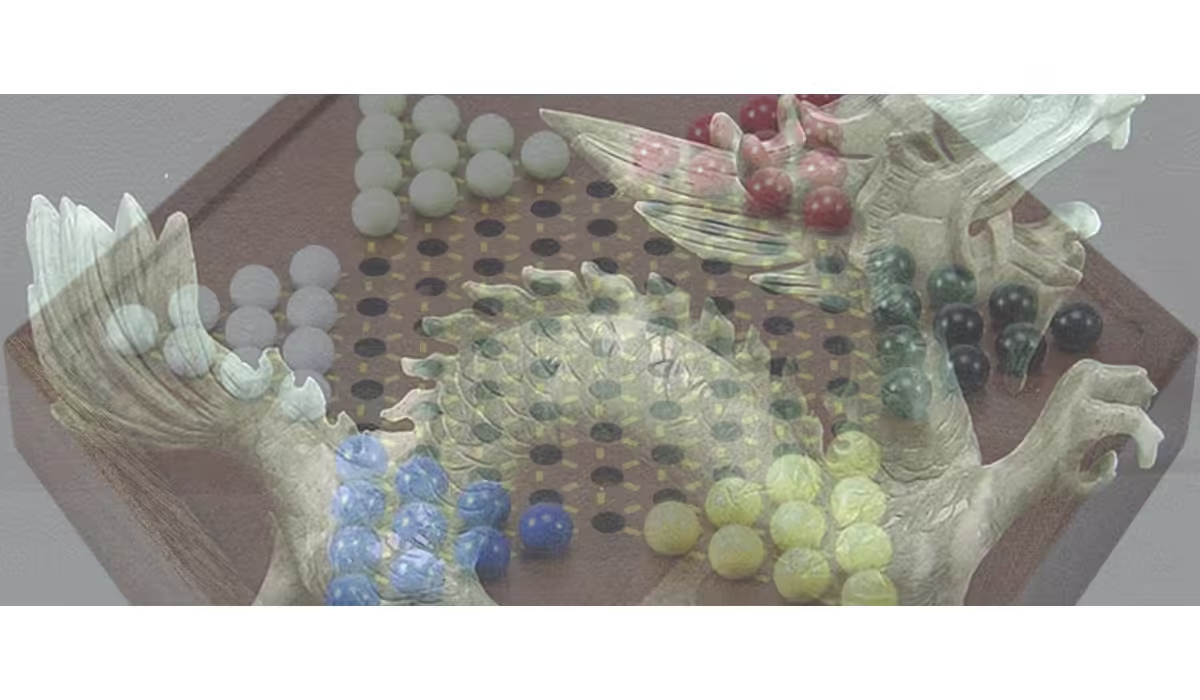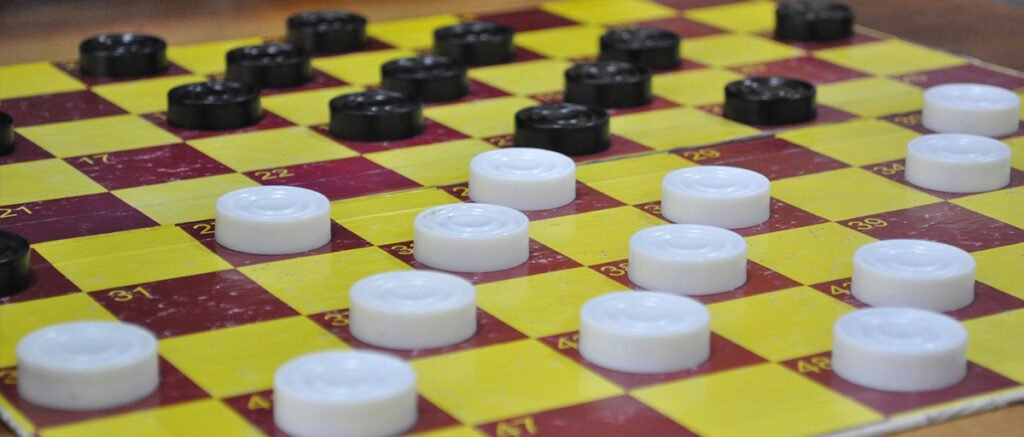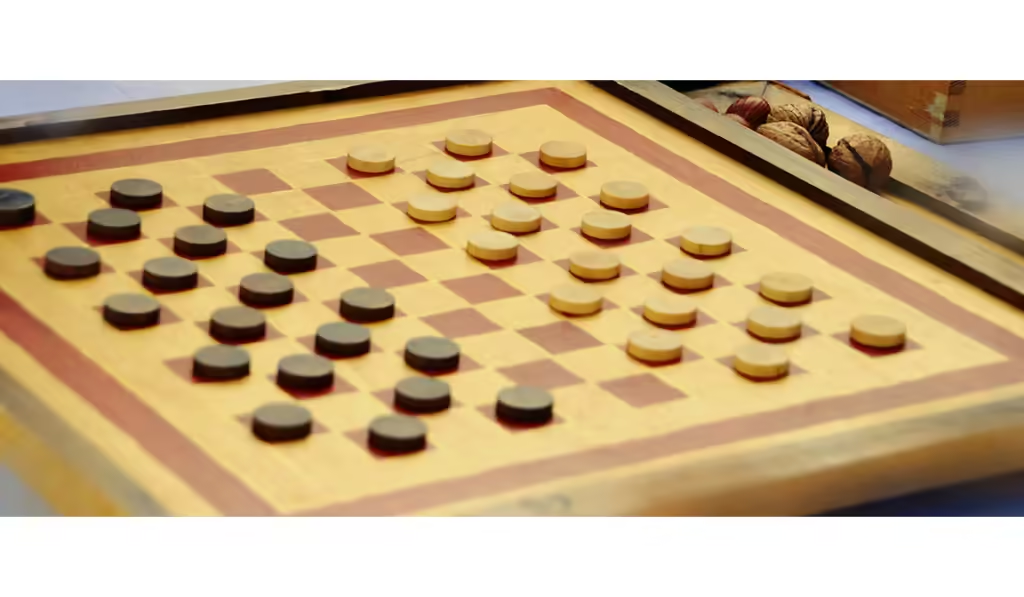Chinese Checkers is a popular board game that has been enjoyed by people of all ages for many years. Despite its name, the game did not originate in China, and the reasons behind its name are often a subject of curiosity. In this article, we will delve into the history and origins of Chinese Checkers to shed light on why it is called as such.
Table of Contents
The Origin of Chinese Checkers
Contrary to what the name suggests, Chinese Checkers is not of Chinese origin. The game was actually created in Germany in the late 19th century by a man named George Howard Monks. Monks, an American, was inspired by a British game called Halma and sought to modify it to make it more exciting and enjoyable.
Monks’ version of the game was initially called Stern-Halma, and it quickly gained popularity in the United States. However, when the game was introduced in Europe, it was marketed as Chinese Checkers to add an exotic appeal to its name and attract more attention from potential players.
The Chinese Connection
Despite its lack of Chinese origin, the game’s association with China can be traced back to its marketing strategies. The term Chinese was used to make the game seem more exotic and mysterious, which was a common marketing tactic during that era. The fascination with Chinese culture and products was prevalent in Europe and the United States at the time, and marketers leveraged this trend to attract consumers.
Furthermore, the board used in Chinese Checkers vaguely resembles a star-shaped pattern, similar to the symbol of the Chinese flag. This visual similarity might have also contributed to the game being associated with Chinese culture.
Chinese Checkers gained popularity during a time when there was a growing interest in cultural exchange and international influences. Using the term “Chinese” in the game’s name allowed it to tap into the prevailing fascination with the Far East and its cultural traditions. This marketing strategy helped create a sense of intrigue and allure around the game, making it more appealing to potential players.
The Game’s Mechanics
Chinese Checkers is a strategy-based board game played on a star-shaped board with 121 holes or spaces. The board consists of a hexagram that interconnects six equilateral triangles, forming a star shape. The objective of the game is to be the first player to move all of their colored pieces (usually marbles) from their starting triangle to the opposite triangle on the board.
The game mechanics of Chinese Checkers are relatively simple, yet they require strategic thinking and planning. Each player takes turns moving their pieces in a straight line or by jumping over other pieces, similar to the mechanics of checkers. The game can be played by two to six players, either individually or in teams, adding a social and competitive element to the gameplay.
Strategies and Tips
To excel at Chinese Checkers, it is essential to employ effective strategies. Here are some tips to enhance your gameplay:
- Plan Ahead: Anticipate your moves and plan several steps ahead to outmaneuver your opponents. By considering multiple possibilities, you can formulate a strategy to maximize your pieces’ progression and block your opponents’ paths.
- Utilize Hopping: The ability to jump over other pieces is a crucial aspect of the game. Strategically hop over opponents’ marbles to gain an advantage and hinder their progress. Look for opportunities to create chains of jumps to cover more distance on the board.
- Occupying the Center: Aim to occupy the central triangle of the board as it allows for greater mobility and provides more options for moving your marbles across the board swiftly. It also gives you the ability to influence multiple paths and disrupt your opponents’ strategies.
- Balance Offense and Defense: Find a balance between offensive and defensive moves. While it is important to focus on advancing your marbles, also consider blocking your opponents’ progress whenever possible. Strategically position your marbles to create obstacles for your opponents and limit their options.
- Observe Your Opponents: Pay attention to your opponents’ moves and adapt your strategy accordingly. By studying their patterns and intentions, you can better predict their future moves and counteract their strategies. Look for weaknesses in their positions and exploit them to gain an advantage.
Conclusion
In conclusion, although Chinese Checkers is not actually from China, its name was primarily a marketing ploy to attract players by tapping into the fascination with Chinese culture. The game’s intriguing star-shaped board and its mechanics have made it a beloved classic that continues to entertain people worldwide. So the next time you gather with friends or family for a game of Chinese Checkers, you can impress them with your knowledge of its origins and the reasons behind its name. Enjoy the strategic gameplay and may the best player win!
FAQ
Q: Is Chinese Checkers originally from China?
A: No, Chinese Checkers was actually created in Germany by George Howard Monks.
Q: Why is it called Chinese Checkers then?
A: The game was marketed as Chinese Checkers to add an exotic appeal and attract more attention from potential players.
Q: Does the board in Chinese Checkers have any connection to Chinese culture?
A: While the board vaguely resembles a star-shaped pattern similar to the symbol on the Chinese flag, it does not have a direct connection to Chinese culture.
Q: What are some strategies to improve gameplay in Chinese Checkers?
A: Some strategies include planning ahead, utilizing hopping to jump over opponents’ marbles, aiming to occupy the central triangle, balancing offense and defense, and observing opponents’ moves to adapt your strategy.
Affiliate Disclosure
Some of the links on Draughts.biz are affiliate links. This means that we may earn a small commission if you click through and make a purchase, at no additional cost to you. Please note that our product reviews and roundups are independent, and the affiliate relationships do not influence our content in any way.
Draughts.biz is a participant in the Amazon Services LLC Associates Program, an affiliate advertising program designed to provide a means for sites to earn advertising fees by advertising and linking to Amazon.com.
Amazon and the Amazon logo are trademarks of Amazon.com, Inc. or its affiliates.
Our passion for board games extends far beyond the checkers board. We’ll be your trusted companion, on a journey through the enchanting realms of not only checkers (or draughts) but also chess, backgammon, dominoes, mahjong, and a diverse array of other captivating board games.
Whether you’re in search of the ideal chess set, the best chess books, a chinese checkers set, a checkers set, or if you’re seeking the excitement of a thrilling game of mahjong solitaire, we’ll guide you along the way. In partnership with our affiliates, we bring you an extensive selection of board games and past times to explore and enjoy.
Dive into our extensive collection of guides and reviews, and unlock the joy and exhilaration that board games offer. From exquisitely crafted game pieces to the essential accessories that elevate your gaming experience, we’re here to guide you through it all with ease and delight.
Join us in celebrating the timeless allure and camaraderie that these games nurture, one post at a time!




